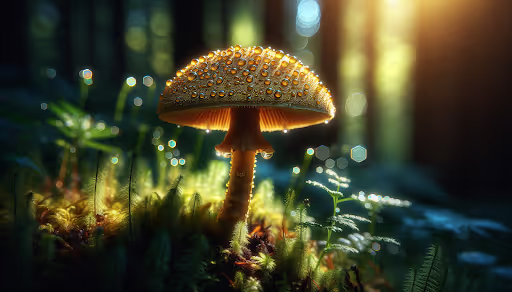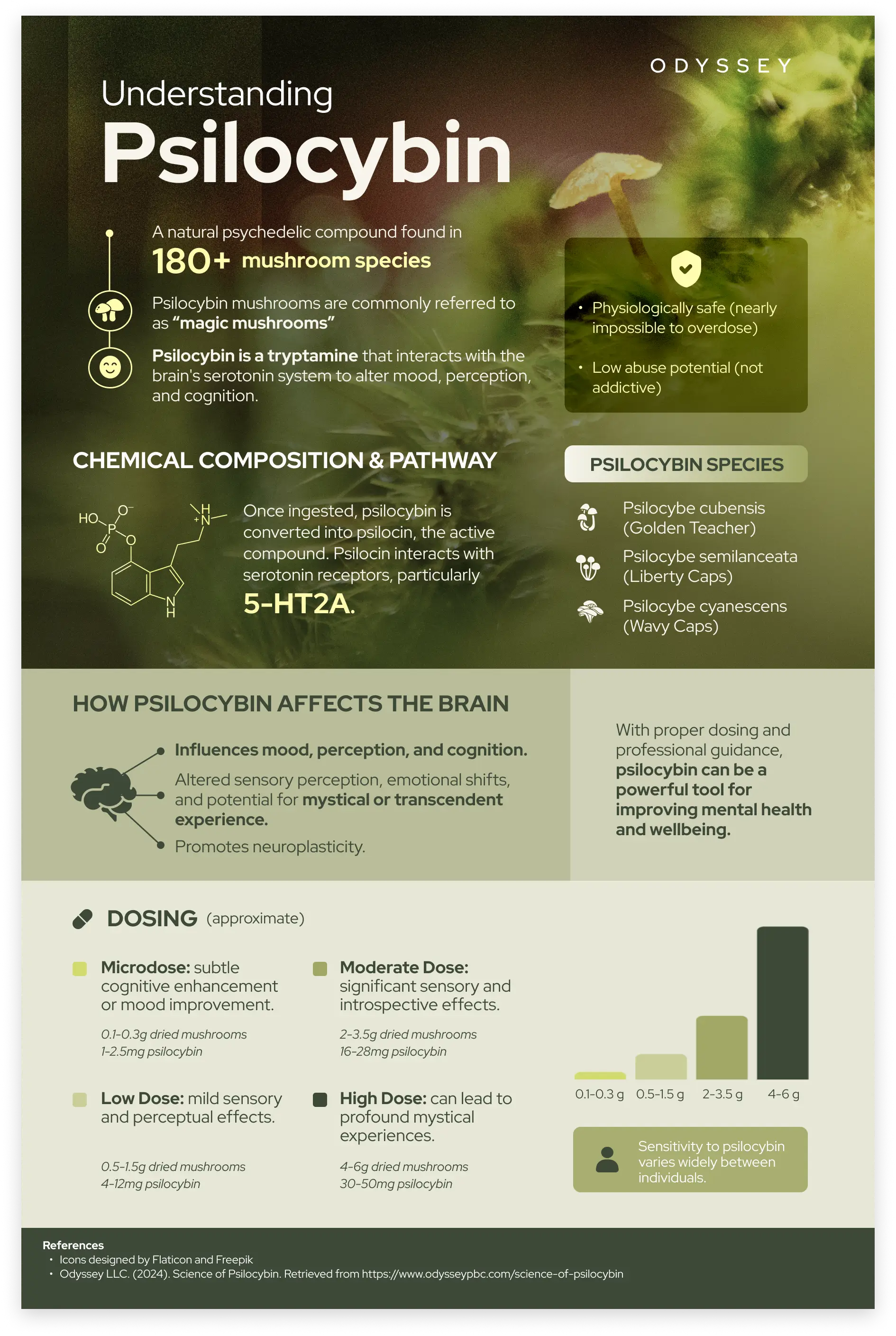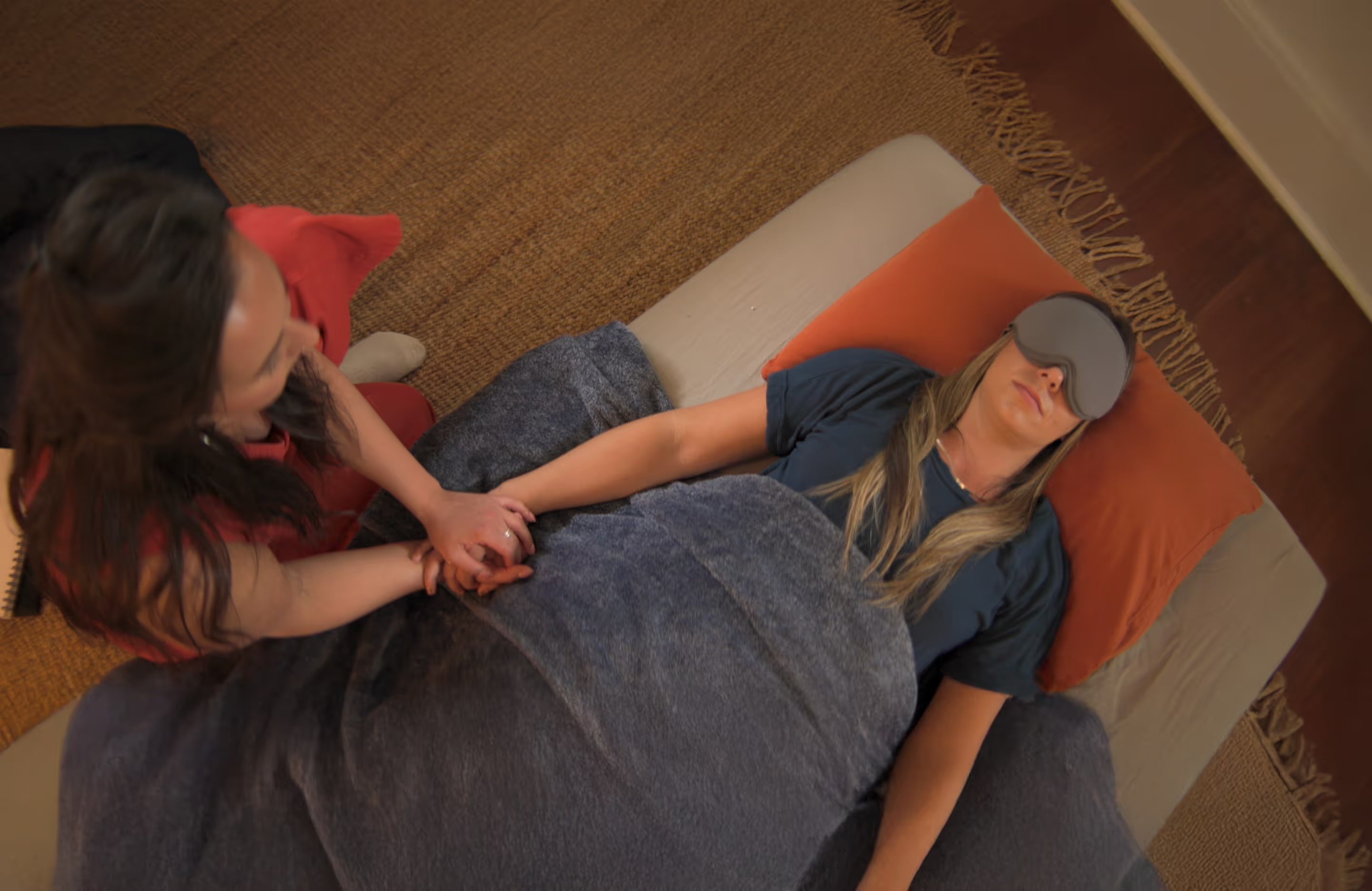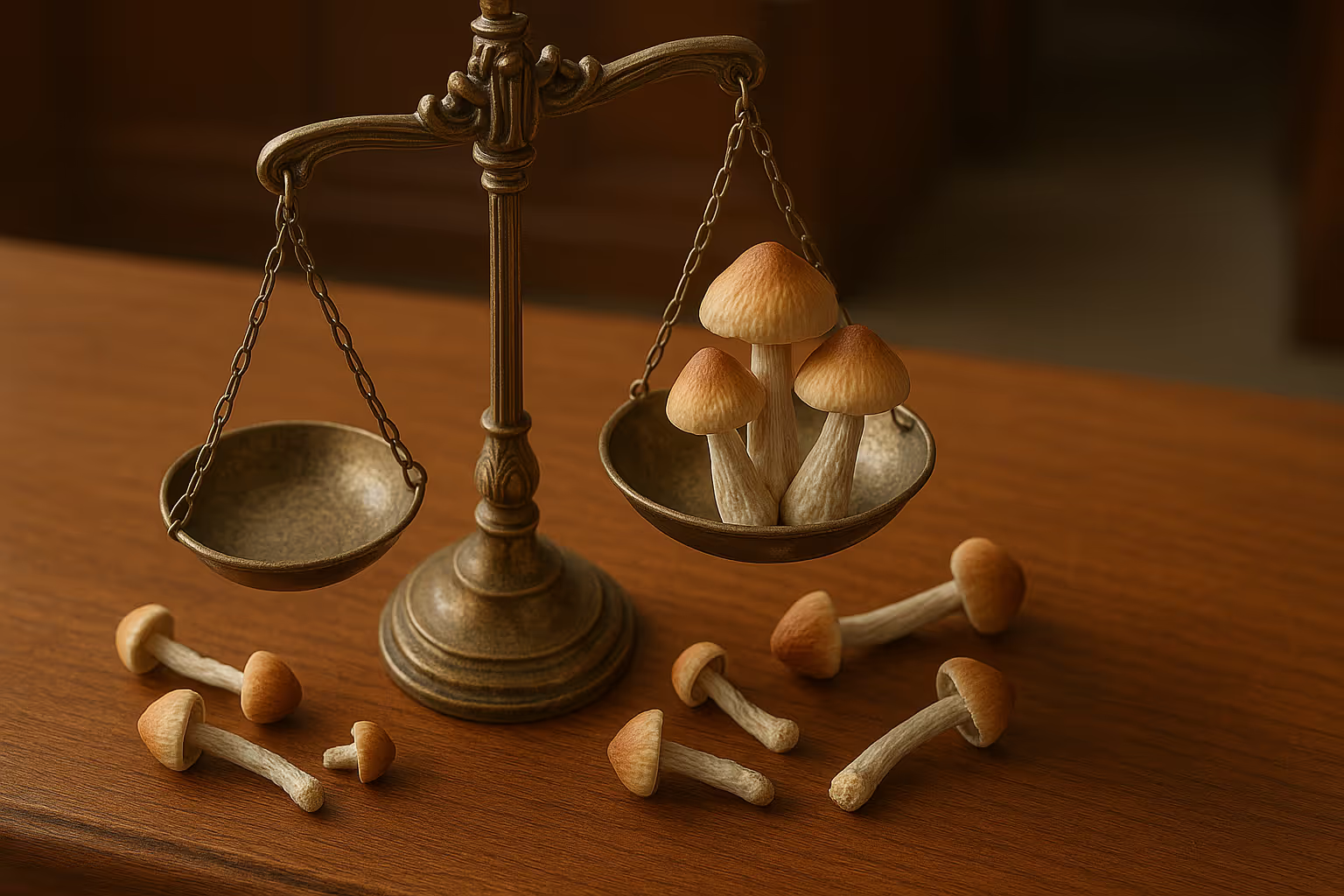Are Mushrooms Legal in California? What to Know in 2025

Psilocybin, the psychoactive compound found in magic mushrooms, has gained significant attention in California due to its potential therapeutic benefits and growing scientific research. In recent years, the conversation surrounding the legal and medical use of psychedelics has intensified, particularly in the context of mental health treatment. California, known for being at the forefront of health and wellness trends, has become a hub for discussions and research on psilocybin therapy.
In this comprehensive guide, we will explore the current legal status of psilocybin in California, review ongoing legislative efforts to change its classification, and discuss the growing interest in its medical and therapeutic applications. Additionally, we’ll examine the legal pathways for accessing psilocybin and what the future might hold for the substance in California. By the end, you'll have a detailed understanding of the landscape of psilocybin in the state and how it may affect you.
What is Psilocybin (“Magic Mushrooms”)?
Psilocybin is a naturally occurring psychedelic compound found in over 200 species of fungi, primarily from the genus Psilocybe. When ingested, psilocybin is metabolized into psilocin, which binds to serotonin 5-HT2A receptors in the brain, inducing altered states of perception, mood, and cognition. Psilocybin's effects are linked to increased neural plasticity and modulation of the brain's default mode network (DMN), which plays a crucial role in self-referential thoughts and cognition. These mechanisms are thought to underlie psilocybin's therapeutic potential in treating mental health conditions such as depression, anxiety, and PTSD.

Are Mushrooms Legal in California?
Psilocybin mushrooms remain illegal under federal law and California state law, classified as a Schedule I controlled substance. This classification means the substance is considered to have a high potential for abuse and no accepted medical use, making the possession, sale, and cultivation of magic mushrooms containing psilocybin unlawful across the state. Despite this, there have been ongoing legislative efforts and city-level actions aimed at changing this legal status.
Senate Bill 58
In 2023, State Senator Scott Wiener introduced Senate Bill 58, which aimed to allow for the "facilitated or supported use" of psilocybin mushrooms for adults aged 21 and older in therapeutic settings. However, the bill was vetoed by Governor Gavin Newsom, who expressed concerns about the need for more comprehensive treatment guidelines and safety regulations before the legislation could move forward.
Senate Bill 58 also sought to decriminalize the personal use, possession, and cultivation of certain psychedelic drugs, including psilocybin, DMT, and mescaline, while establishing a framework for their therapeutic application. It aimed to create a working group under the California Health and Human Services Agency to explore how these substances could be safely integrated into therapeutic settings. Additionally, the bill included provisions to expunge criminal records related to past convictions for these substances, promoting a broader shift toward decriminalization and legal reform.
Senate Bill 1012
In 2024, Senator Scott Wiener introduced Senate Bill 1012, titled the "Regulated Psychedelic Facilitators Act and the Regulated Psychedelic Assisted Therapy Act," which aimed to create a regulated framework and therapeutic guidelines for the use of psychedelics in California. The bill proposed establishing a professional licensing board, the “Board of Regulated Psychedelic Facilitators,” and a “Division of Regulated Psychedelic-Assisted Therapy” to ensure the safe administration of substances like psilocybin, MDMA, and mescaline for therapeutic purposes. SB 1012 outlined licensing requirements, education and training standards, and ethical guidelines for facilitators, while also addressing potential conflicts of interest.
Although the bill progressed through multiple committees, it stalled in the Senate Appropriations Committee due to concerns over the financial impact of establishing and maintaining the regulatory board, leaving its official status as “Held in committee and under submission” as of October 2024.
Decriminalization vs. Legalization Efforts
While state-level legalization efforts have stalled, several cities in California have taken steps to decriminalize psilocybin. Cities like San Francisco, Oakland, and Santa Cruz have passed measures to deprioritize the enforcement of laws against the personal possession of small amounts of psychedelic mushrooms. This does not make psilocybin legal, but it reduces the likelihood of arrests and prosecutions for possession in these areas.
A key area of focus moving forward is the creation of regulated frameworks for therapeutic access. Governor Newsom’s veto of SB-58 emphasized the need for structured guidelines, suggesting that future legislation might need to incorporate licensing requirements, facilitator training, and oversight mechanisms similar to Oregon’s model. Research institutions in California, such as UCLA and UC San Francisco, continue to explore psilocybin’s therapeutic potential, further bolstering the case for medical legalization. If a regulated framework gains traction, California could become a leader in psychedelic-assisted therapy, ensuring safety and access for those seeking alternative treatments for mental health conditions.
Accessing Psilocybin Legally in California
Currently, California does not provide any legal avenues for accessing psilocybin for personal or therapeutic use, as it remains a Schedule I controlled substance under both state and federal law. Although the state is exploring legislative frameworks to regulate psychedelic therapy, no legal access exists at this time. However, individuals seeking psilocybin-assisted therapy can explore legal options in states like Oregon, where organizations like Odyssey offer safe, professionally-guided psilocybin experiences within a regulated framework – get matched to the right experience for you.

Medical & Therapeutic Applications
Mental Health Treatment
Psilocybin has become a key focus in the field of mental health treatment, with promising results in various clinical trials and research studies. It has been shown to potentially alleviate symptoms of several psychiatric conditions, especially in patients who have not responded to traditional therapies. One of the most significant areas of research has focused on treatment-resistant depression (TRD), for which psilocybin has been classified as a breakthrough therapy by the US Food & Drug Administration (FDA). Studies have demonstrated that psilocybin, when administered in a controlled setting, can lead to profound reductions in depressive symptoms after just one or two sessions. A notable trial conducted by Johns Hopkins University found that psilocybin, combined with supportive therapy, resulted in significant improvements in depressive symptoms, with many patients reporting long-lasting relief.
Psilocybin’s mechanism of action involves acting as a serotonin receptor agonist, particularly on the 5-HT2A receptors. This interaction is thought to increase neural connectivity, disrupt the brain’s default mode network (often linked to ruminative thinking in depression), and promote emotional and cognitive flexibility. These effects can potentially explain why patients often experience a sense of renewal and emotional clarity following psilocybin-assisted therapy. In addition to depression and anxiety, psilocybin therapy is being investigated for its potential in treating post-traumatic stress disorder (PTSD) and substance use disorders. Early trials have shown promising results in helping individuals confront trauma and break patterns of addiction, particularly in smoking cessation and alcohol dependency. While these findings are encouraging, proper screening, medical supervision, and post-session integration remain essential to ensure the safety and efficacy of psilocybin therapy.
All of the retreats and sessions at Odyssey are science and evidence-based, designed to mitigate any risk and maximize therapeutic benefits. Learn more here.
Read: Psilocybin Therapy for Depression and Psilocybin Therapy for Obsessive-Compulsive Disorder (OCD)
Ongoing Research
California is at the forefront of psilocybin research, with numerous studies underway at the University of California–San Francisco, the University of California–Berkeley, and the California Center for Psychedelic Therapy, among other institutions. These trials cover a wide range of applications, including treatment-resistant depression, chronic low back pain, Parkinson's Disease, palliative care, bipolar disorder, anorexia, and more.
One particularly interesting study compares the physiological and psychological effects of psilocin and psilocybin in healthy adults aged 25-50. This research could provide valuable insights into the differences between these two related compounds and their potential therapeutic uses.
The ongoing research in California is contributing to a rapidly expanding body of evidence that supports psilocybin's potential as a transformative mental health treatment. By exploring both physiological and psychological effects, studies aim to refine our understanding of how psilocybin and related compounds like psilocin can be best utilized in clinical settings. As these investigations progress, they are shaping the future of therapeutic practices, particularly by addressing conditions where conventional therapies have not been effective. California's research efforts are positioned to play a pivotal role in establishing new therapeutic frameworks, potentially paving the way for psilocybin's broader acceptance in mainstream medical treatments and expanding access to innovative mental health care solutions.
Read: The Safety of Psilocybin Therapy
Conclusion
California’s journey toward psilocybin reform has seen both progress and setbacks. While cities like Oakland and San Francisco have decriminalized the personal use and possession of certain psychedelics, the broader state-level effort faced a significant roadblock with the veto of Senate Bill 58 (SB-58) by Governor Gavin Newsom in October 2023. The bill, which aimed to decriminalize psilocybin, DMT, ibogaine, and mescaline, passed both chambers of the legislature but was ultimately rejected due to concerns over implementation and public health infrastructure. Newsom expressed interest in further research and a regulated therapeutic model rather than broad decriminalization, signaling that future efforts may need to align more closely with a medicalized approach similar to Oregon’s psilocybin services program.
At the local level, decriminalization efforts continue to expand. Cities such as Oakland and San Francisco have adopted measures that deprioritize law enforcement actions related to the personal use of psychedelics. While these policies do not equate to full legalization, they reflect a shifting perspective among policymakers and the public. Decriminalization at the municipal level serves as an important testing ground for broader reform efforts, providing insight into the societal impacts of reduced criminal penalties for psychedelic substances.
For now, Californians interested in psilocybin therapy must look to decriminalized local jurisdictions or pursue therapeutic sessions in states where psilocybin is fully regulated and legal, such as Oregon and Colorado.
FAQs
Is psilocybin legal in California?
- Psilocybin is currently illegal in California under state law, classified as a Schedule I controlled substance. However, cities like San Francisco, Oakland, and Santa Cruz have decriminalized its possession for personal use, meaning law enforcement deprioritizes such cases. Proposed legislation has attempted to legalize psychedelic therapy, including SB 1012 and 58, but has thus far failed.
Can I legally use psilocybin for therapy in California?
- As of now, there are no licensed clinics or centers in California where you can legally use psilocybin for therapy. While there are ongoing efforts to legalize therapeutic use, psilocybin remains illegal under state law.
What is Senate Bill 58 and how does it affect psilocybin?
- Senate Bill 58, introduced in 2023, sought to allow the supervised, therapeutic use of psilocybin mushrooms for adults over 21. However, the bill was vetoed by Governor Gavin Newsom, citing the need for clearer guidelines and safety regulations.
What cities in California have decriminalized psychedelic mushrooms?
- San Francisco, Oakland, and Santa Cruz have decriminalized the personal possession and use of psilocybin mushrooms. However, it remains illegal at the state level and decriminalization only means that enforcement is deprioritized, not that psilocybin is legal.
What are the benefits of psilocybin therapy?
- Psilocybin-assisted services have shown promise in treating conditions like depression, anxiety, PTSD, and addiction. Clinical trials have reported improvements in emotional well-being, personal insights, and the processing of trauma when combined with professional therapy.
What are the risks of using psilocybin?
- Risks include the possibility of distressing psychological experiences, commonly known as "bad trips," which can involve anxiety, paranoia, or fear. Individuals with pre-existing psychiatric conditions like schizophrenia may experience worsening symptoms. The use of psilocybin outside controlled settings also carries safety risks. All of the retreats and sessions at Odyssey are facilitated by experts and evidence-based, mitigating any risks associated with psilocybin experiences.
Can I grow magic mushrooms at home in California?
- No, the cultivation of psilocybin mushrooms is illegal in California under state law. This includes the growth of spores or mycelium capable of producing psychedelic mushrooms.
What psychedelics are legal in California?
- Currently, no psychedelic substances are fully legalized for personal use in California, except for ketamine which can be accessed with a prescription. Ketamine is legal only for medical use and is administered in controlled clinical settings for treating conditions like depression and post-traumatic stress disorder.

.svg)









.svg)